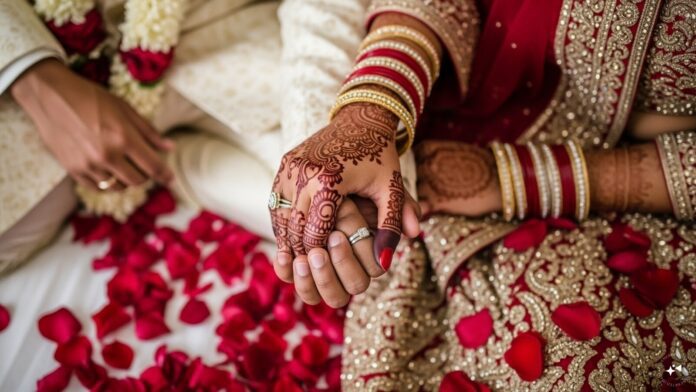Property Rights: If a second marriage is entered into, will the wife and her children get a share in the husband’s property? Many people are not clear on this matter. Let us now know what the law says.
Nowadays, many people are getting married for the second time. However, many people are not aware of the property rights of the second wife and her children. In India, these rights are based on laws like the Hindu Marriage Act, 1955 and the Hindu Succession Act, 1956. Whether a second marriage is legally valid or not is a key issue. Let us now see who gets what, when and what.
When is a second marriage valid?
According to the Hindu Marriage Act, 1955, for a second marriage to be valid, one of the following conditions must apply.
1- Death of the first spouse.
2- Legal divorce from the first marriage.
3- Court declares the first marriage invalid.
4- Absence of the first spouse for at least seven years.
This is because the Hindu Marriage Act prohibits polygamy. This means that a person cannot have two legal spouses at the same time. If the first marriage was not legally dissolved, the second marriage is not valid.
Property Rights of the Second Wife
The right of the second wife over the husband’s property depends on whether her marriage was valid or not.
– If the marriage is void in law: If the husband does not legally come out of his first marital relationship (for example, by divorce or death of the first wife), but marries a second time, the second wife has no right to share in his property. However, she is entitled to maintenance under the Hindu Adoption and Maintenance Act, 1956.
When is it valid:
If the second marriage is legal (for example, after the death or divorce of the first wife), the second wife has the same property rights as the first wife. If the husband dies intestate, she can claim his share of the inherited and ancestral property. If a divorce is granted, the first wife generally loses her right to the husband’s property. She is only entitled to any alimony ordered by the court.
Property rights of children by second wife
Children by first and second wife have equal rights over their father’s property, irrespective of their legitimacy. As per Hindu Succession Act, 1956, children are considered as Class 1 legal heirs. That is..
– If the father dies intestate, his property is divided equally among his children (children of both wives), his wife (if the marriage is valid), and his mother.
Even if the second marriage is invalid, the children born from that marriage are legitimate under Section 16 of the Hindu Marriage Act. They can claim an equal share in their father’s property, just like the children born from the first marriage. If she had any children before the second marriage, they will not get any share in the property of the person she is currently married to.
However, property rights may vary depending on the situation. Let’s look at some examples..
Case 1: If a husband marries a second wife without being legally separated from his first wife, the second marriage is invalid. After her death, the second wife does not get a share in the property. The property goes equally to the first wife, her children and the children of the second wife.
Case 2: If the first wife dies, the second marriage is valid. After the death of the husband.. the second wife and the children of both the wives have an equal share in the property.
Case 3: The husband, after divorcing his first wife, marries a second wife. Then the second marriage becomes valid. After his death, the first wife does not get any share (except maintenance if ordered by the court). The second wife and the children of both the wives share the property equally.
Case 4: If the husband and the first wife jointly own a property, if the first wife is alive, she will keep her share. But the children of the second wife can still claim the husband’s share. If the first wife dies, the husband becomes the sole owner. The second wife can claim the share after her death.
Rights of Half-Blood Children
Half-blood children (those who have biological parents) also have inheritance rights. However, if there are full-blood children (children of both parents), they are given priority. If there are no full-blood children, the half-blood children inherit the property.




